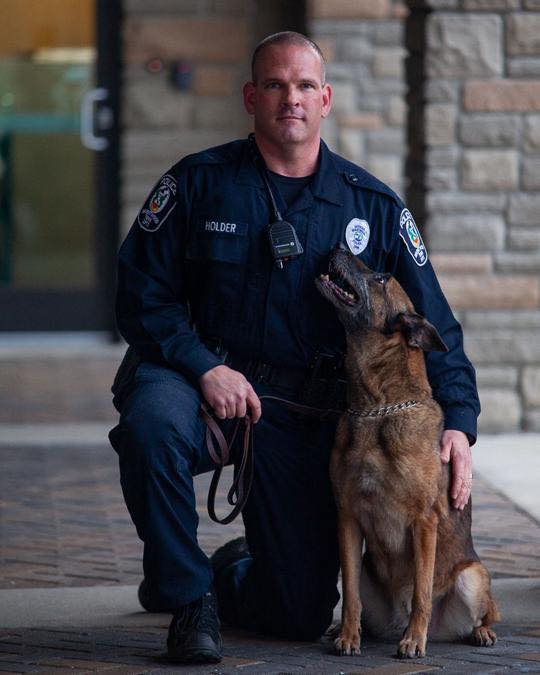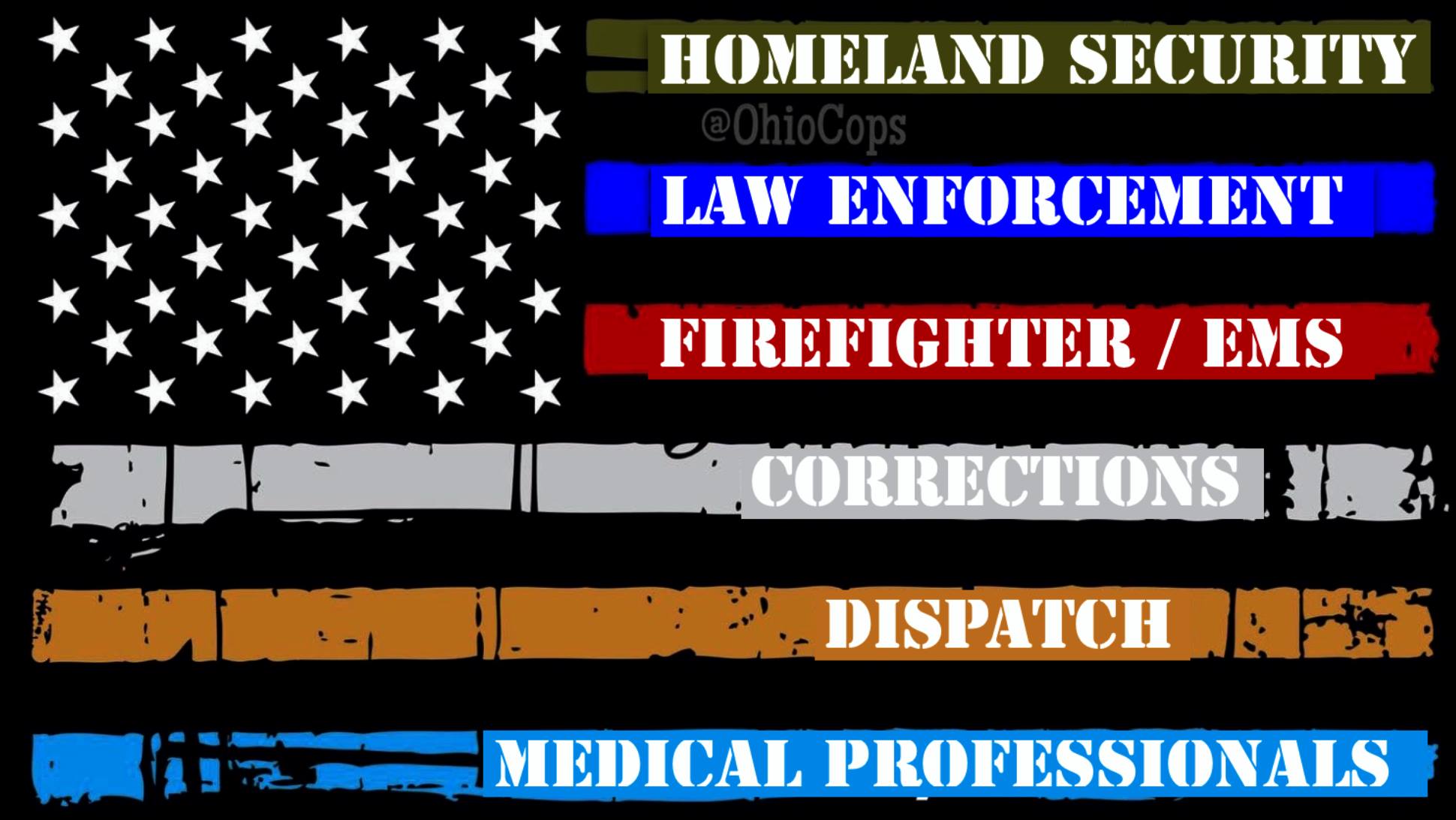Regulus Counseling for First Responders AND LEOs
“Out of suffering have emerged the strongest souls…”—Khalil Gibran, Lebanese-American Writer, Poet, and Visual Artist (1883-1931)
FIRST RESPONDERS AND LEOs
“We have to take care of our own, before we can take care of anyone else.”—Lifelines: Substance Use Disorder, Status Code 4, Inc.
A few words from our founder and clinical director:
“There is a severe gap in sufficient mental health services among law enforcement officers who will actively seek mental health services. The profession exposes them to critical and stressful situations, which may adversely affect performance, productivity, and personal wellness, which makes it imperative for law enforcement officers to have an outlet. In general, police departments had little to no options for mental health services; believing there were no viable options, law enforcement officers were reluctant to seek help for effective, healthy coping strategies to manage the stress associated with their profession. After retiring from law enforcement, I translated my experiences in my department into the civilian world. Otherwise, reluctant law enforcement officers in need of help would suffer.”
Regulus Counseling is named, in part, in homage to a community we are passionate in supporting: Law Enforcement Officers, or LEOs, and First Responders, where our hope is to fill that gap—providing sufficient resources and care to an underserved community. Our First Responders are the protectors within our communities—the first to rush towards danger and violence; the first to rush towards scorching fires and horrific accidents; the first to hear our emergencies to dispatch help; and the first to comfort a victim’s loved one—do so every day, never certain if they will return home unscathed, without scars, or at all.
Many times, we associate First Responders: a firefighter, a police officer, an EMT, we visualize a strong hero, invincible to danger. First Responders internalize the pressure to hold themselves in this regard, where they have an innate ideation: protecting others. First Responders feel compelled to internalize that standard of strength, while also carrying intense pain and grief from their experiences as a protector. That pain and grief is hidden, particularly from their family and others close to them, shielding them from their unfathomable experiences and continual stressors.
Many times, we associate First Responders as those who rush into action in the line of duty. First Responders are also those who rush to dispatch help by sending firefighters, law enforcement officers, and EMTs. These First Responders are the courageous men and women who work behind the scenes to coordinate the efforts of the front line officers, to ensure they arrive to the emergency in a timely manner. These First Responders are often overlooked as personnel and overlooked for similar mental health services as they are behind the scenes. Their roles as First Responders are as equally important as those in the line of duty, where they face similar emotions of trauma, particularly secondary trauma, from hearing the frantic calls for service. One salient distinction between these First Responders and those in the front lines of duty: they often do not receive closure from these emergency calls, left to worry about the person who called, or the person involved in the emergency.
Among the First Responder community is the tradition of sacrifice: placing the needs of others above their own, as the last to seek help. Working under stringent demands, many incidents are extremely stressful and emotional. The First Responder must compartmentalize: focusing on his or her duty while suppressing their emotions and stress, silently.
First Responders are chronically exposed to stressors: high level traumatic events, accompanied with intense emotional experiences, resulting from the traumatic and critical event. Trauma, compounded by difficult working circumstances (including long hours, continual stress, poor diet and exercise regiment, threat of injury or death, sleeping difficulties, little personal time, among other factors), deteriorate the First Responder’s physical, mental, and emotional health, which adversely affects his or her work performance, while also inevitably, adversely affecting his or her family life.
First Responders not only hold responsibilities to their communities, they also hold responsibilities to the people in their personal lives, where they must also balance the daily stressors associated with family life. Not only are First Responders coping with stressors, critical incidents, and other potentially traumatic events while in the line of duty, they are potentially coping with these events in their personal lives. It is imperative to provide First Responders readily accessible resources, which enable them to navigate through these conditions with effective stress management tools to maintain a balance.
In working under severe, chronic, and traumatic stress, there is a unique nature in regards to trauma experienced by First Responders, which is not necessarily defined by a singular traumatic event; rather, the trauma is cumulative over time, complex, and multifaceted, also referred to as Cumulative Career Traumatic Stress (CCTS). CCTS is similar to PTSD, with the distinction of CCTS as the First Responders sporadically experience one or a combination of symptoms throughout their career, as they are exposed to a myriad of traumatic events, whereas PTSD presents suddenly as a result of a singular traumatic event directly experienced by the First Responder.
SYMPTOMS OF CUMULATIVE CAREER STRESS DISORDER (CCSD)
Cumulative Career Stress Disorder (CCSD) presents as the sporadic experience of trauma symptoms:
- Intrusive thoughts and memories of troubling incidents (flashbacks or nightmares)
- Emotional numbing
- Moodiness
- Anxiety
- Avoiding reminders of an incident(s)
- Loss of hope
- Hypervigilance
- Memory and/or concentration difficulties
- Sleeping and/or eating difficulties
- Disconnection from family and friends
- Hyperarousal
We enter a paradigm shift: First Responders are progressively encouraged to be receptive in receiving support from those who understand their daily difficulties, where they no longer struggle in silence, alone. First Responders no longer have to hold themselves at an impossible standard—it is okay to not be invincible, it is okay to be human. What is important to recognize is that underneath their uniforms, are human beings with their own needs.
Enhancement in overall wellness is an investment. First Responders investing in themselves, are investing in their families, by being a better parent, a better spouse. First Responders investing in themselves, are investing in their community, to better serve and protect their neighbors. We recognize the pressures and traumas First Responders face, supporting them in their needs, as we look beyond their uniform and their devotion to protecting their communities. Our team behind Regulus Counseling hopes to embark on that journey with you, as we envision each of our clients as an investment: for themselves, their families, and their communities.
The commitment to self-care is essential to overall wellness.
FIRST RESPONDERS AND LEOs, INDIVIDUAL
First Responders are exposed to daily stressors while on duty, where that chronic stress, alone, can contribute to the development of PTSD. Compounded by the life-threatening situations and other traumatic events, including secondary trauma (or vicarious trauma), First Responders have a high likelihood of developing PTSD. Over time, the daily stress, pressure, and trauma accumulate, adversely affecting the First Responders’ performance on the job, and most importantly, their health and overall wellness. It is essential for First Responders to have a private mental health professional to confide. First Responders’ wellness is not only essential for the individual (personal wellness), but also their family, and the communities they protect.
In our experience, two primary barriers to First Responders seeking counsel are: the feeling their clinician may never understand their experiences; and the concern of confidentiality, particularly within their department (if the department provides an institutional mental health service, and in general). As a veteran of the United States Army and of law enforcement, our founder and clinical director has extensive knowledge of these experiences, hearing and witnessing these stressors and pressures among his peers, while also hearing their concerns that available mental health services would not sufficiently meet their needs.
Regulus Counseling will connect our First Responders with the clinician who specializes in working with trauma and the First Responder community. Our team of clinicians offers evidence-based trauma therapy for First Responders on their journey into healing from PTSD, chronic trauma, and other mental health issues as consequences of the trauma, guiding clients in their path towards healing and discovering wellness, by providing healthy, constructive stress management skills. We utilize a confidential, secure, HIPAA-compliant tele-therapy platform, where all clients, including First Responders, can be confident that confidentiality is a paramount priority. Together, we can navigate any road.

FIRST RESPONDERS AND LEOs, FAMILY
Our team behind Regulus Counseling ensures each member of a First Responder family receives the care and support they need. We recognize each member of the family faces different challenges, where we will work with you to navigate these challenges and find constructive solutions to decrease stress and heighten emotional wellness.
SPOUSES
In our experience, a First Responder’s journey into healing is not taken alone; it is also taken by their spouse on a parallel journey. First Responders understand the potential harms associated with the job, and has accepted it; the spouse also acknowledges these risks, but has not necessarily considered the consequences of those dangers, considerably changing the dynamic of the relationship.
As First Responders experience physical dangers while on duty, at times, their trauma can be compounded by a physical injury. The spouse may now transition into a caregiving role. As the First Responder embarks on his or her journey into healing, the spouse, as a caregiver, will begin to neglect their emotional needs, placing everyone’s needs first, experiencing challenges in silence, alone. The spouse will rarely complain, share difficulties, or ask for help.
However, the best thing the spouse can do for their First Responder, family, and themself, is to regain control over their own happiness and health—physically and emotionally. Similar to their First Responder spouse, it is okay to take off the superhero cape—it is okay to be human, and seek guidance towards rejuvenation and wellness.
CHILDREN
Children may be the least recognized for their emotional needs, who may have difficulty navigating their unique challenges in which they do not necessarily understand, or have a difficult time expressing and articulating. Our team consists of clinicians experienced in working with children, facilitating a dialogue to share these difficulties and concerns.

Consulting: Peer Support, CISM, CIT, First Responder-Specific Workshops, Policy Review
In general, most departments do not have proactive mental health resources, particularly after traumatic incidents. During his 13-year career in law enforcement, our founder and clinical director saw the lack of mental health services for his peers, and felt there was a need for some type of service; he would have to invent options by pioneering his department’s Peer Support Team and the Critical Incident Stress Management (CISM) Team. The implementation of the Peer Support Team and CISM resulted in overall decrease in self-reported stress; increase in proactive dialogue about mental health; and decrease in behavioral issues, conduct complaints, and general negative functioning among law enforcement officers.
PEER SUPPORT
Peer Support was developed in response to the insufficient mental services available to First Responders. Although some departments may provide an institutional mental health resource, First Responders may have reluctance in seeking help from the institution within the department. The cited reason is the concern of lack of confidentiality within the department, both among peers and supervisors. A second concern is that the clinician recruited by the department may not comprehend the stresses, pressures, and traumas associated with the First Responder profession. Peer Support facilitates an open, honest dialogue among fellow First Responders who understand and empathize with these unique experiences and challenges.
CRITICAL INCIDENT STRESS MANAGEMENT (CISM)
Critical Incident Stress Management (CISM) was designed to help First Responders normalize their experiences in stress reaction and response after critical incidents. This strategy helps to mitigate long-term mental health issues, with the aim of returning the First Responder involved to the pre-incident baseline, with the goal of deterring the onset of PTSD.
It is crucial that mandatory CISM debriefings are conducted within 72 hours of the critical incident. The trauma reaction can form within those 72 hours. Once the 72 hours have lapsed, any clinical intervention will no longer be effective, and can be viewed a punitive; mandatory attendance after that 72 hours can also be viewed as punitive.
In association, the Crisis Intervention Team (CIT) program was designed to provide LEOs mental health training and de-escalation training and how to interface with the mentally ill and provide alternatives to incarceration.
FIRST RESPONDER SPECIFIC WORKSHOPS
Basic and Advanced Peer Support Training
Organizational Stress and Reduction
Pro-Active Coping During Pandemic and COVID-19
First Responder Family Stress Reduction and Coping
POLICY REVIEW
Comprehensive policy review and assessment with state law and best practices.


